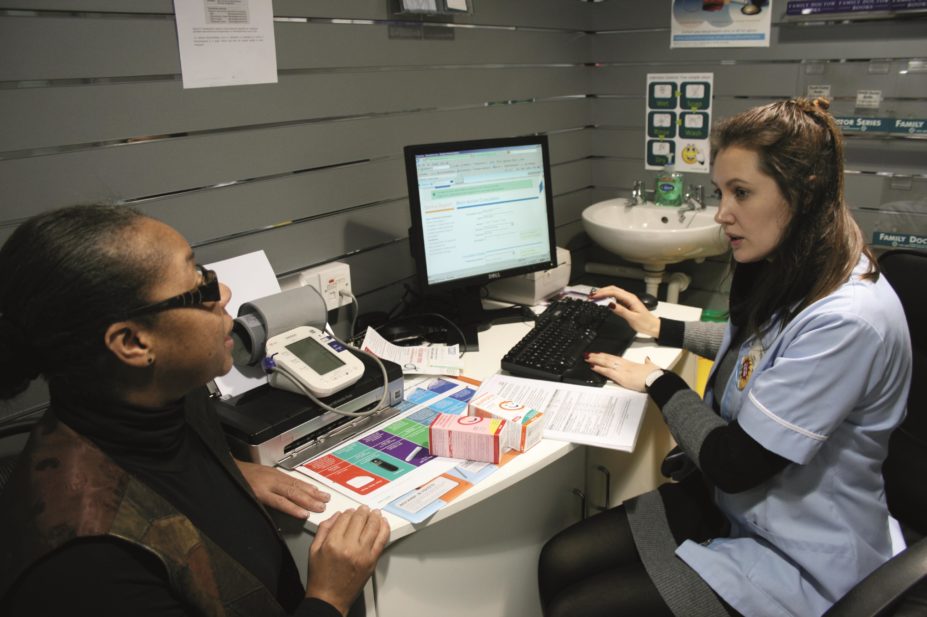
MAG / The Pharmaceutical Journal
Spot checks are to be carried out on pharmacists who claim payment for providing medicines use reviews (MUR) for patients.
NHS England has said that from October 2017, NHS Business Services Authority (NHS BSA) will ask a number of pharmacy contractors to submit their signed patient consent forms that correspond to payments for MURs.
But Mike Holden, former chief executive of the National Pharmacy Association and now managing director of pharmacy consultancy MH Associates, said this move was unlikely to restore trust between NHS England, the Department of Health and community pharmacy.
“We did not expect this when MURs were introduced in 2005/2006,” he said.
“Given the financial climate and the relationship between the government and community pharmacy, you can see why this is happening. It sends out a strong message, but I’m not sure it really helps.”
Pharmacies will be selected at random, but those with an exceptionally high claiming rate for MURs are more likely to be asked to provide evidence for their claims.
The Pharmaceutical Services Negotiating Committee (PSNC) said it was the first step towards pharmacists having to provide evidence of all the advanced services they offer to patients.
PSNC figures show that in 2016/2017, 3,025,116 MURs were carried out in community pharmacies at a cost of almost £85m.
The number of pharmacies providing the service in May 2017 (the most recent figures available) was 10,239, with each pharmacy claiming for an average of 29.43 MURs each month.
In a statement, the PSNC said the NHS BSA will start undertaking post-payment verification for MURs in October 2017.
It said: “NHS England is responsible for monitoring the provision of essential and advanced services by contractors and they have a duty to assure themselves of the quality and probity of activity provided under the Community Pharmacy Contractual Framework.”
NHS England local teams had previously carried out this work, but “resource constraints have limited their ability to perform this work, which has resulted in a lack of consistency in how this is carried out across the country.”
The new approach has been agreed by the PSNC, NHS England and NHS BSA.
The PSNC said: “The standardised approach … aims to identify any issues related to the claiming of payment for advanced services and to facilitate resolution of those issues with the individual contractor. Where common issues are identified, advice will be provided to all contractors on how such issues could be avoided in the future.”
The PSNC said that each month NHS BSA will request evidence from a sample of contractors to support the payment claims they have submitted for advanced services over a three-month period.
This will start with payment claims for MURs.
Liz Butterfield, RPS clinical spokesperson on medicine optimisation, said standardising the use of MURs would be welcome, but that this initiative did not appear to be intended to increase their use.
“What I would like to see is MUR uptake increasing and incentives, not necessarily financial ones, to encourage more interaction with patients and their medicines in a more structured way,” she said.
“But if this is the only change, it is not obviously going to be of any benefit to the patient.”
PSNC director of NHS services, Alastair Buxton, said the move was not prompted by fears of fraud, but that the current method of local assessment was too patchy.
“Ultimately this is taxpayers’ money and it is simply a case of good governance by NHS England,” he said.
“This system is used in dentistry, and from our perspective having a standardised national system is an advantage.”
The PSNC said any pharmacy selected to submit their consent forms would receive a letter from NHS BSA setting out exactly what they had to do and by when. Only pharmacies contacted by NHS BSA would have to provide any extra information.
A spokesperson for NHS BSA said they could not comment because although it was carrying out the work, it was doing it on behalf of NHS England, which was responsible for setting policy.
NHS England was approached for comment but had not provided comment at the time this article was published.